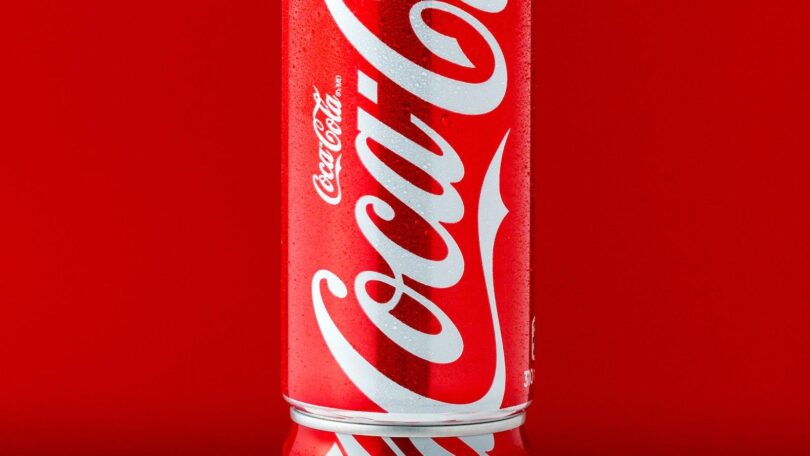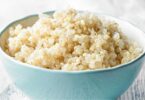We consume it every day in pursuit of health and wellness. Diet soda is the backbone of healthy eating in modern society, but it isn’t always as good for us as we think it is. It may become a recipe for unhealthy habits without careful consideration and moderation.
1. What is Diet Soda?
Diet soda may seem like a healthier drink choice as it contains fewer calories, but it still presents many health risks. Here are five important things to keep in mind when considering how diet soda affects your health.
- It contains artificial sweeteners – Most diet sodas contain artificial sweeteners, such as aspartame and acesulfame potassium which have been linked to various health concerns.
- It may lead to weight gain – Studies have linked diet soda consumption to an increased risk of weight gain or obesity. Additionally, these artificial sweeteners are known to trigger cravings for sweet food, potentially leading to poor eating habits.
- It may cause kidney damage – Studies have suggested that regularly drinking diet soda can increase the risk of developing kidney damage. This is likely due to the artificial sweeteners, which can cause inflammation in the kidneys and impair their ability to filter out waste.
- It may destroy tooth enamel – Diet sodas are usually highly acidic, and this can lead to tooth erosion and damage to the enamel of the teeth. This is made worse if the diet soda is consumed in large quantities.
- It may lead to other health issues – Regular consumption of diet soda has been linked to various other health issues, such as headaches, depression, stroke, and heart disease.
Ultimately, while diet soda may appear to be a healthier choice, drinking it regularly can lead to some serious health concerns. If you’re looking for a healthier alternative, you may want to consider sparkling water or unsweetened tea.
2. Dietary Consequences of Consuming Diet Soda
As more individuals shift away from sugary drinks, diet soda is an attractive beverage choice as it promises to offer the same great taste with fewer calories. Unfortunately, the implications of consuming diet soda may be more detrimental to health than one may anticipate. Here are two dietary consequences of regularly consuming diet soda:
- A sugar substitute does not mean it is sugar-free: Despite the claim of “zero sugar”, diet sodas contain sugar substitutes like aspartame, saccharin, and sucralose which have been linked to adverse health effects. Studies suggest sugar substitutes may confuse the body into believing it has consumed sugar, leading to an increase in appetite and calorie consumption. Additionally, studies suggest intake of these substances may increase the risk of the development of Type 2 Diabetes.
- Imbalance gut microbiota: Research indicates diet sodas change the gut microbiota, interrupting a person’s overall digestive functioning, metabolizing process, and immune system. Imbalance in gut microbiota can lead to health issues including various forms of inflammation, weakened immunity, and even obesity.
Overall, what might seem like a harmless choice when trying to cut sugar consumption can have serious consequences on one’s health down the line. It’s best to be mindful when considering diet soda and its true implications when it comes to health.
3. Understanding the Long-term Health Risks Associated with Regular Diet Soda Consumption
It’s no secret that sugary beverages are unhealthy, but what about diet soda? Many people pick up a can of diet soda in an attempt to make a more health-conscious decision, but this belief is mistaken. Though the sugar content of diet soda is lower than regular sodas, this does not necessarily equate to a healthier option. Let’s consider some of the long-term health risks associated with consuming diet soda.
- Cardiovascular Disease: When it comes to heart health, diet sodas can be detrimental. People who drink two or more cans of diet soda per day had a 30% higher risk of stroke, heart attack, and other forms of cardiovascular disease compared to those who didn’t drink any diet soda.
- Obesity: Research has also shown that diet soda consumption is linked to weight gain and obesity. Studies have suggested that the artificial sweeteners used can disrupt the way the body metabolizes sugar, resulting in increased body fat and waist circumference.
- Kidney Disease: Studies have suggested that long-term and regular consumption of diet soda may increase the risk of Chronic Kidney Disease (CKD). One such study indicated that those who drank diet soda were two times more likely to experience CKD than those who drank none.
- Cancer: Diet soda contains certain ingredients that have been linked to an increase in cancer risk. In particular, some studies have found a correlation between diet sodas and increased risk of bladder cancer.
Though diet sodas may be lower in sugar than regular sodas, the long-term health risks associated with regular consumption may outweigh the benefits. For those seeking a more health-conscious option, opting for water, tea, or even an occasional conventional soda might be a better bet.
4. Reforming Unhealthy Habits: Some Alternatives to Diet Soda
1. Low-Calorie Drinks: Instead of traditional sugary soda, dieters who are looking to cut back on calories can opt for low-calorie alternatives such as sparkling water, La Croix, or tea. These drinks are calorie-free and still provide a satisfying and spritz bubbly texture. Adding a few drops of lemon or citrus juice can help spruce it up.
2. Clear Soda Alternatives: If you’re looking for something a little sweeter, opt for a soda alternative. Clear sodas contain less sugar than their traditional counterparts. These drinks include ginger beer, sparkling water with a splash of juice, and flavored seltzer water.
3. Coconut Water: Replacing soda with fresh coconut water is a great way to give your body a healthy dose of potassium and electrolytes while slightly sweetening the beverage. Coconut water freshens up any smoothie or shake, and can even be drank solo.
4. Herbal Teas: One great way to stay hydrated and fulfill a craving for anything sweet is through herbal teas. There is a wide variety of ready-made herbal teas out there to choose from. Adding in a few drops of honey or a spoonful of natural sweetener makes the tea much more enjoyable.
5. Kombucha: Packed with probiotics, this all-natural drink has become increasingly popular in recent years. Kombucha comes in many flavors, ranging from ginger to guava, and makes a great healthier alternative to regular soda.
5. Steps to Make the Transition to a Healthier Beverage Choice
1. Start by reducing your carbonated beverage consumption
Reducing your regular soda consumption is an essential first step when transitioning to healthier alternatives. If you’re a diet soda fan, slowly cut back on the amount of soda you drink to train your taste buds to like healthier beverages. Alternate between regular soda and diet soda when making an effort to reduce your consumption.
2. Consider replacing flavored waters with diet soda
Though they may sometimes contain added sugar, flavored waters are generally a healthier alternative to diet soda. Great-tasting options like fruit-infused waters can be just as refreshing while providing vitamins and nutrients. Try finding one that can replace the same level of sweetness and carbonation you normally crave from a diet soda.
3. Have your drinks sweetened with natural sweeteners
When you’re looking for something a bit sweeter, opt for natural sweeteners like honey to get your fix. While these make for a healthier alternative, just keep in mind that they still contain plenty of calories and so should be consumed in moderation.
4. Pre-plan for occasions when you would usually consume diet soda
No matter how hard you’re trying, there will always be occasions when you crave a diet soda. Knowing your triggers can help reduce sudden cravings so you can stick to your new goal of healthier beverages. Have a prepared list of healthier alternatives that you can easily whip up that will satisfy your craving.
5. Reward yourself for making a healthier choice
Making the transition to a healthier beverage choice can take a lot of effort, so it’s important to reward yourself along the way. This can be anything from watching an episode of your favorite TV show to getting an extra hour of sleep. Seeing results from your hard work is also a great motivator to keep going!
To Conclude
Are diet sodas a healthy alternative to regular sodas? That depends on who you ask. Despite numerous claims to the contrary, expert studies suggest that these artificially sweetened beverages may still pose a significant health risk. However, only time will tell what kind of impact diet sodas will have on our overall well-being. Until then, enjoy your sodas in moderation, knowing that too much of anything can be detrimental to your health.








